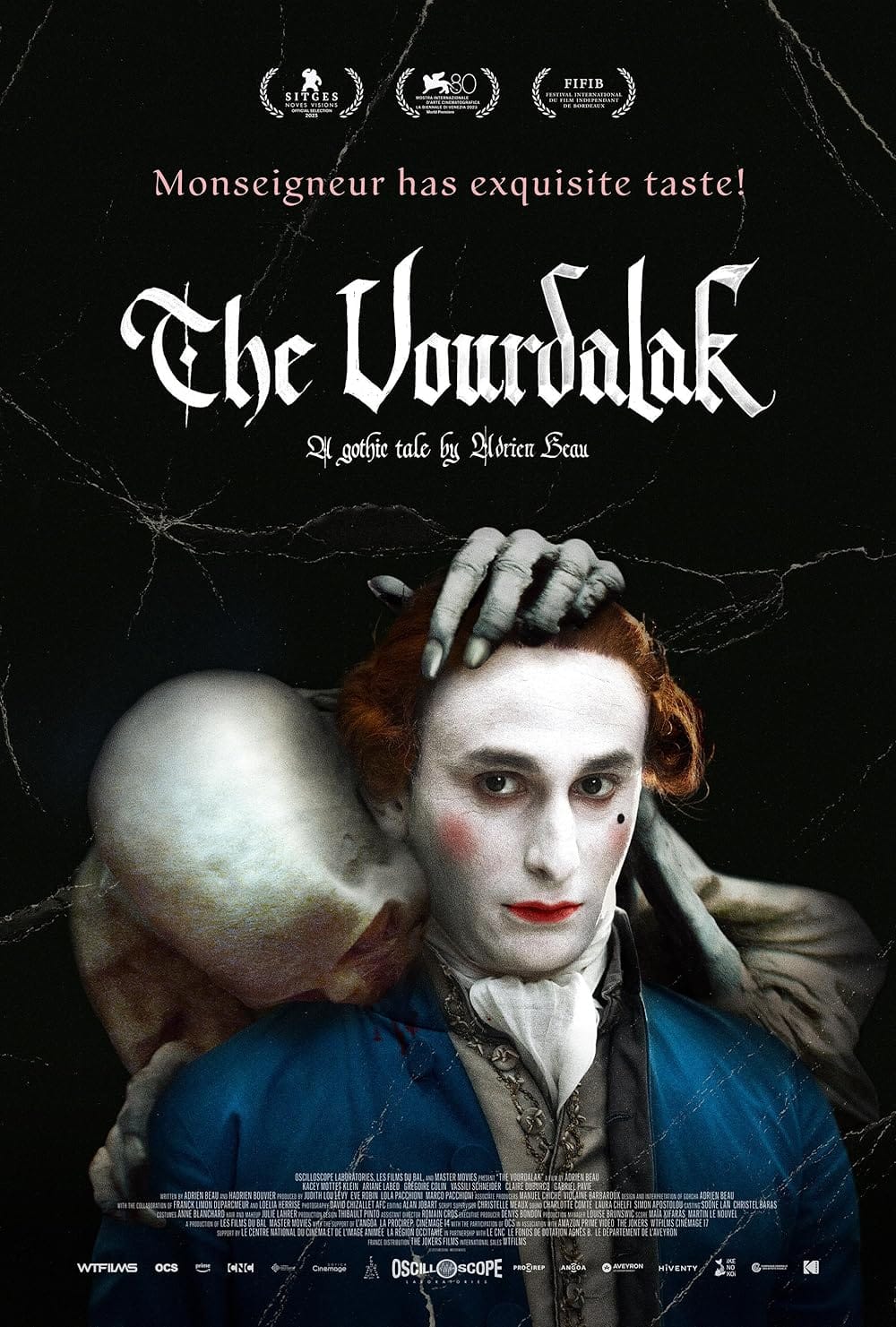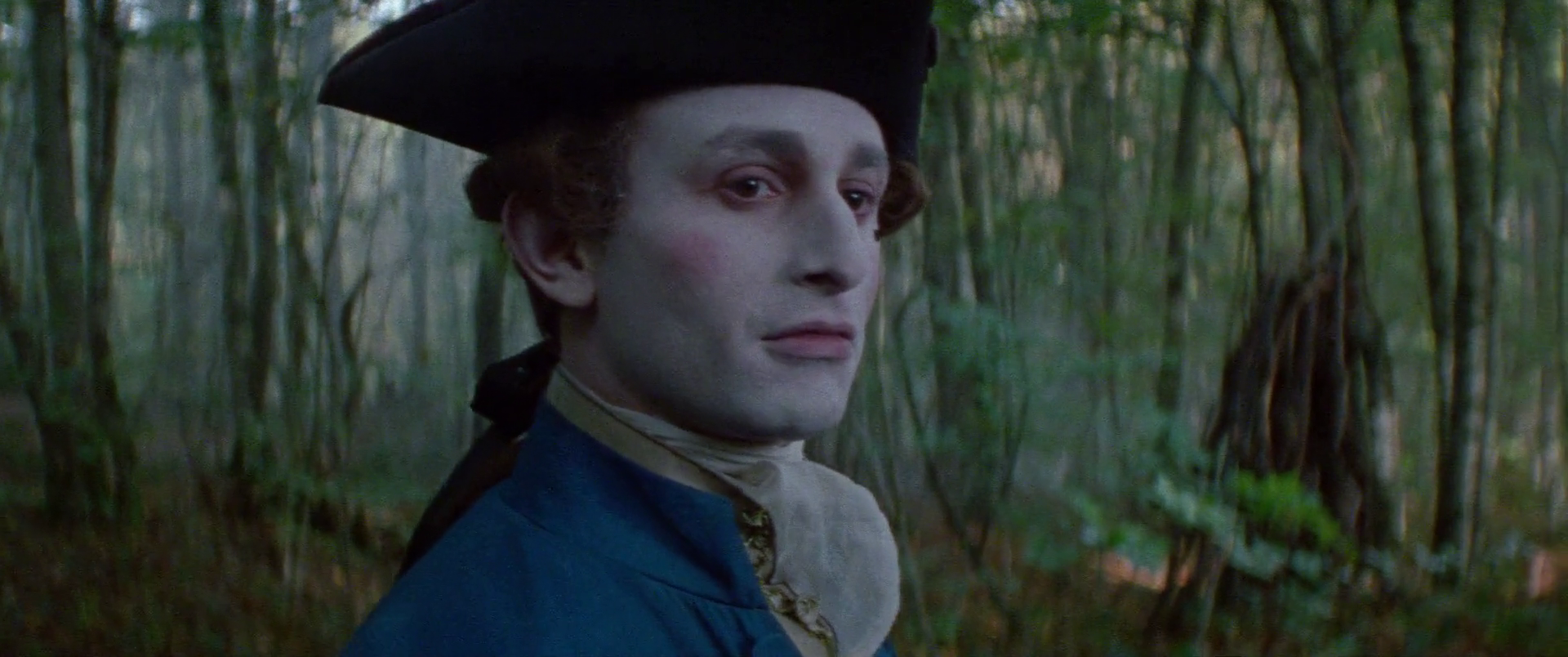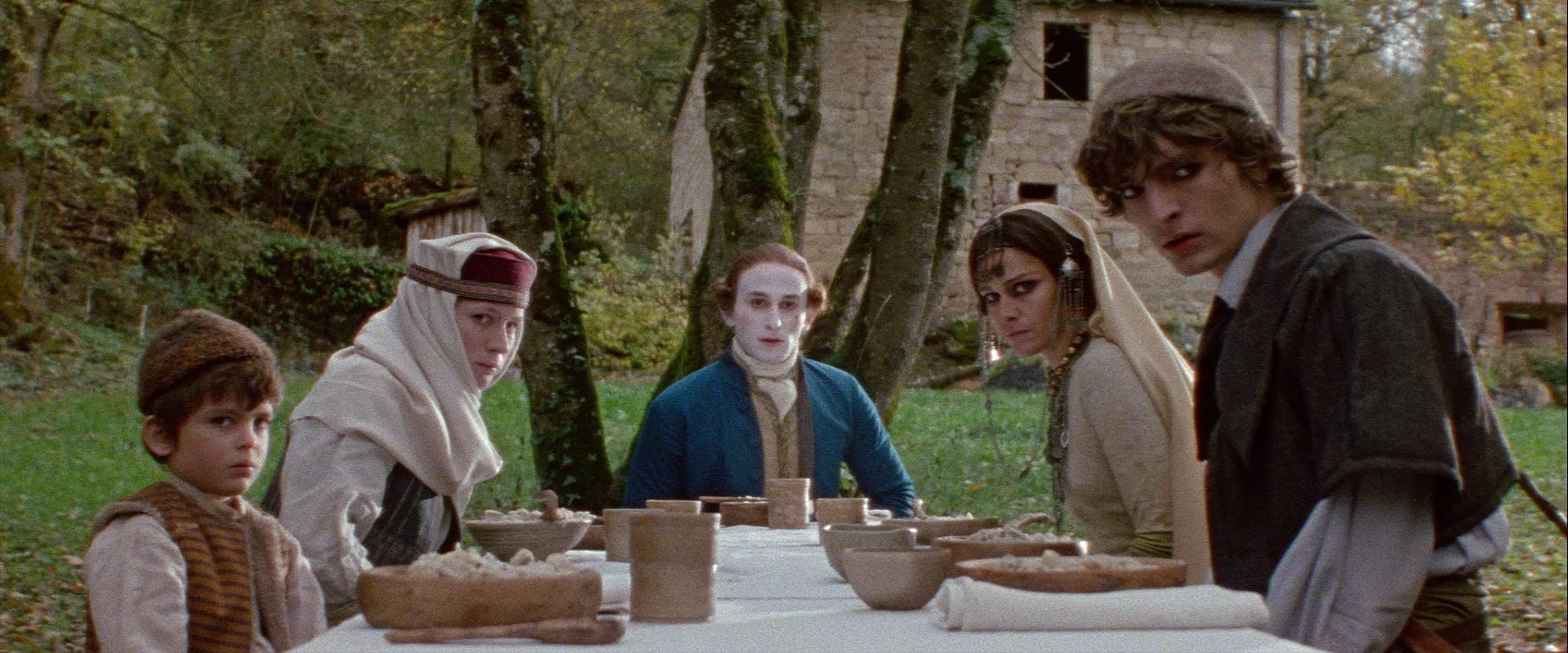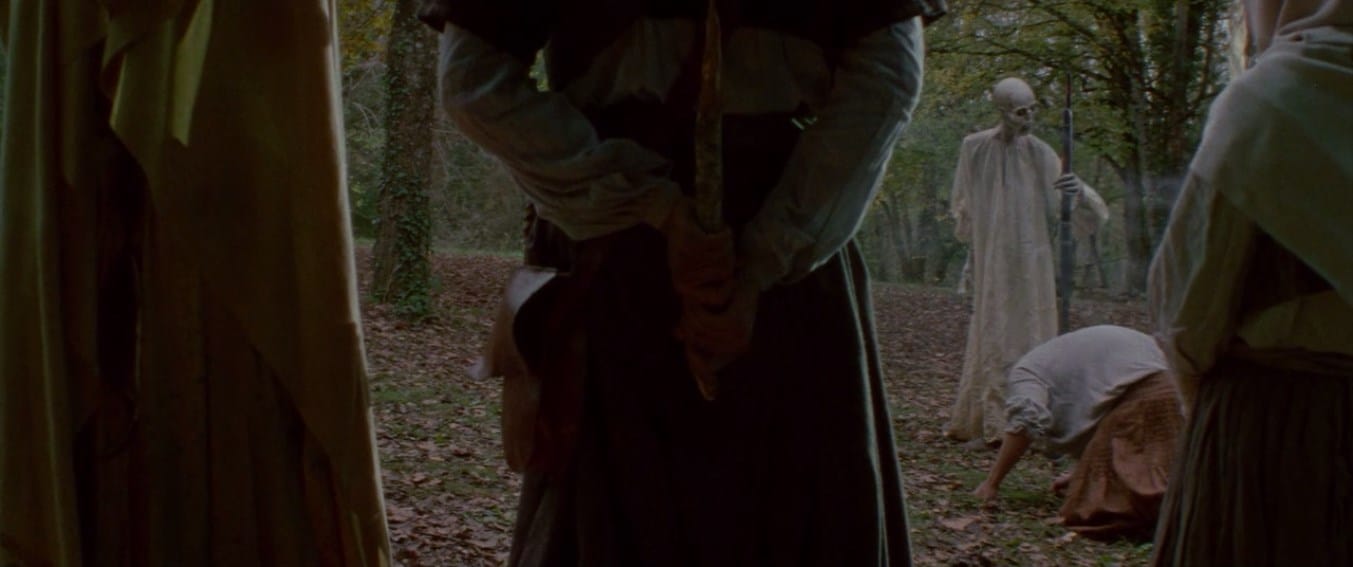The Vourdalak
“Things of the Tomb must stay there.”

Having been waylaid by Highwaymen, leaving his escorts lying murdered on the road, and him lost in a dark and foreboding Serbian forest, the Marquis Jacques Antoine Saturnin d’Urfé, emissary of the King of France, must take refuge in a family’s isolated home, only to find an even worse danger within its walls...
The Vourdalak is a 2023 French horror film adapted from a 19th century novella called “La famille du Vourdalak” written by Aleksey Konstantinovich Tolstoy (not to be confused with Count Lev Nikolayevich “Leo” Tolstoy), which predated Bram Stoker’s Dracula by nearly half a century, featuring a kind of vampire from Slavic folklore known as a vourdalak.
A vourdalak is a undead vampiric creature that returns to its former family home, scratching at the door and asking to be let in. Should someone open the door to it, then the vourdalak will consume its loved ones, inevitably turning its entire family into vourdalaks as well. At that point, I'm not sure what happens. If a vourdalak is only supposed to drain and turn it's family, what does it do once the family has all been turned? Maybe they all wander off in search of cousins? I don't know.
Whatever, moving on.
As per usual, when it comes to the ur-source concepts of modern monsters we're all more familiar with, there's a lot of crossover. In this case, the word "vourdalak" apparently derives from the Slavic word "volkodlak," meaning "wolf-fur," which is basically implying that it is someone who is "wearing" a wolf's skin, which means... a werewolf... kind of, but it’s also definitely a vampire at the same time. Either way, it’s all monster, as the whole idea centers on what I assume was the ancient world’s attempt to explain a Family Annihilator, someone who commits Familicide, which is when someone kills multiple close family members in quick succession, usually children, spouses, siblings, and/or parents.
That way, should something like that happen, to make the rest of the village feel better, they declare it the work of some undead creature, a wretched, cursed, and evil thing, then they cut the heads off of all the corpses, fill the mouths with garlic and roses maybe, and probably turn the heads face down in the coffins, and finally, drive a wooden stake straight through the corpses' chests, the coffin beneath, and into the very ground itself, nailing the body to the earth, all so that the evil will be trapped in its grave where it belongs forever, never to return again.
Cheaper than therapy, I guess.

The Vourdalak is set in the 18th century, deep in the forests of Eastern Europe.
The film opens with a knock on a door on a dark and stormy night, and an obviously frightened man pleading to be let in as the lightning illuminates his tri-corner hat silhouette against the door. The frightened man explains that he is the Marquis Jacques Antoine Saturnin d’Urfé, a special envoy from the king of France, and that he was robbed on the road by Turks, who took his horse and his luggage, and killed his escorts. He begs for shelter against the storm. The man on the other side of the door peers out a peephole, and explains that they do not open the door for anyone after dark. He tells the Marquis to move on, to follow the path through the woods, and to be sure not to stray from it along the way, because at its end, he will find shelter at the House of old Gorcha.
Even before he had the recent run-in with the bandits, the Marquis had grown tired of his little adventure. He’s homesick for the French court, because he is a powdered courtier, a fop and a dandy who brags about being from a family known for their feats of valor… in the 13th Century. Now, stuck in a damp and dark forest, he laments all that he has left behind, the food, the conversation, the festivities, the grand balls especially. But the Marquis is also a cad and a scoundrel, a weasel too, willing to show his teeth to those he perceives as weaker, and then crying when his intended victim turns and bites him back. One must wonder if perhaps this is why The Marquis now finds himself alone in the deep dark Serbian woods, an envoy of the King of France, a man of weak character politely given a position of dubious import in order to disguise the shameful fact that he has been cast out.
Either way, here he is, in the House of old Gorcha.
The family of old Gorcha include his daughter Sdenka, a seer, his youngest son Piotr, a cross-dressing young man, and his domineering oldest son Jegor, as well as Jegor's wife Anja, and his young son Vlad. Jagor does not believe in the local superstitions, so he provides Marquis d’Urfé with sanctuary, promising to find him a new horse in the morning. But Jegor has just returned home himself, and while feeding the Marquis d’Urfé some questionable broth, he discovers that old Gorcha has also left the house, to hunt down and kill the leader of the bandits, and that when he did, he left a grim warning with his children…
“Wait six days for me. If, after those six days, I have not returned, then say a prayer in memory of me, for I shall have been killed in battle. But if ever, and may God preserve you, I were to return after six days have passed, I enjoin you to forget that I was your father and to refuse me entry whatever I may say or do, for then I shall be no more than an accursed vourdalak.”
That was six days ago.
When Old Gorcha finally returns, he brings with him the head of the Turk bandit. He is also clearly a corpse himself.

But because he remains the family patriarch, despite his obviously questionable condition, no one dares question his authority. The Marquis is baffled to see the family defer to old Gorcha, and even tries to dispatch the creature himself, but is out-matched, and can only watch as, one by one, the Gorcha family dies.
Dies... and walks again.
And thus, the Marquis finds himself thrust into a world he does not understand, forced to bear witness as a family tears itself apart, cursed by ancient traditions, in a place where love is a trap, and the only way out is holy water, fire...
Or a stake...

The Vourdalak is very much a throwback in style and feel to old black and white vampire movies, and the clear star of this film is the vourdalak itself. Instead of computer effects, the creature shows up as a huge cadaverous marionette. Like the stop-motion creations of Ray Harryhausen, and on through to the practical effects of films like the original Evil Dead, the uncanniness of the puppet makes it all the more...unnerving? unsettling? Whatever you want to call it, the vourdalak puppet is absolutely fantastic, and along with its smooth voice—making it both unsettling and also comic all at once—fits perfectly with the tone of the film. It's really great.
Loved it.
And not only is the puppet great, but so is the sound, all the slurping and the chomping and the skittering around in the dark is really well done. On top of that, shot in Super 16 mm, the whole thing looks great too. For an obvious smaller budget film, The Vourdalak is an all-around impressively well-done film.
I also really liked the film’s commentary on toxic traditional patriarchal family dynamics by having this obvious monster, this malevolent and manipulative thing, sitting at the head of the table, and using the force of repressive and harmful social norms to enforce its position. The film also illustrates the general ridiculousness of discriminating against women, or those who don’t conform to gender expectations, by having most of that kind of shit all come straight from the mouth of what is clearly a vicious and bloodthirsty vampire. It's a pretty clear critique.
It is fair to say that, despite its 90-ish minute runtime, The Vourdalak is a little slow at times, but overall I found it to be a very satisfying and gory little watch, and not what I was expecting at all. It’s a good time.
Big thumbs up.
